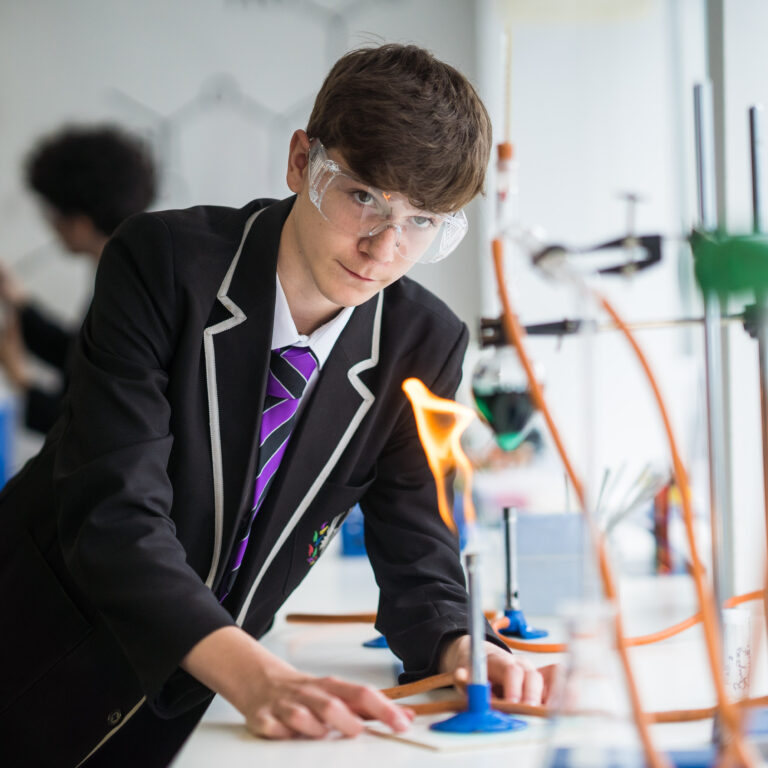The aim within the Science department is to offer a progressive, diverse, high quality and challenging curriculum. We endeavour to support students throughout their journey in secondary education and preparation for the world of work. At the culmination of their studies in Science, students will be confident and analytical individuals, capable of critically evaluating and finding solutions to local, national and international challenges in scientific and non-scientific contexts.
In addition, students of Science at Ernest Bevin Academy will develop practical dexterity and expand their vocabulary with scientific terminology, equipping them with the knowledge, techniques and oracy skills to flourish as responsible, valuable and independent members of British society.
At Key stage 3 (Years 7-9) we follow a custom-made curriculum designed to lead to GCSEs. Year 7 follow the United Learning Science Curriculum, and this will be phased in over the next couple of year. At Key stage 4 (Years 10-11) we follow the AQA syllabus for Science. At Key Stage 5 we follow OCR for Biology, Chemistry and Physics, and Pearson for Applied Science.
The Science Department uses Microsoft Teams, Seneca Learning and Kerboodle as our main online resources. Homework and Learning Resources are posted on Teams. E-textbooks (all Key stages) are available via Kerboodle. All of these platforms can be accessed by using the student Microsoft 365 user accounts.

